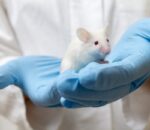Enrollment Now Complete for PROOF-HD Trial of Oral Pridopidine
Written by |

A Phase 3 clinical trial investigating the efficacy and safety of oral pridopidine for those with early stage Huntington’s disease is now underway at more than 50 clinical sites in the U.S., the U.K., Canada, and Europe, according to Prilenia Therapeutics, which is developing the treatment candidate.
Prilenia announced that it has completed recruitment for its PROOF-HD (NCT04556656) trial, with more than 480 patients now enrolled — surpassing the initial target, and ahead of schedule.
“We have been able to reach this milestone well ahead of schedule and with numbers over our enrollment target of 480 participants, despite the global pandemic,” Michael R. Hayden, PhD, CEO and founder of Prilenia, said in a press release.
“We are … deeply grateful to the clinical site teams and the HD [Huntington’s disease] community globally for supporting this trial,” said Hayden, also a professor at the University of British Columbia, in Canada.
The trial is being conducted in collaboration with the Huntington Study Group, created in 1993 as the first worldwide HD cooperative therapeutic research organization.
“Completing the enrollment of the PROOF-HD clinical trial brings us closer to finding more effective treatments for Huntington’s Disease and reducing the burden for families affected by the disease,” said Andrew Feigin, MD, chair at the Huntington Study Group.
Top-line results are expected in the first quarter of 2023.
Pridopidine is a small molecule that selectively activates the sigma-1 receptor (S1R), which is thought to have biological effects that protect nerve cells from damage. Prilenia also is developing the therapy for other neurodegenerative diseases, such as amyotrophic lateral sclerosis (ALS).
The therapy was designed to reach both the brain and spinal cord, where it activates the S1R, present at high levels in brain cells. By activating S1R, pridopidine boosts the production of brain-derived neurotrophic factor (BDNF), a protein with neuroprotective effects, whose levels are reduced in people with Huntington’s.
In preclinical studies in animal models and human cells, pridopidine was shown to prevent neuronal cell death while reinforcing the connections between neurons.
A previous Phase 2 trial, called PRIDE-HD (NCT02006472), had investigated the therapy among more than 400 patients with early stage Huntington’s. One-year treatment with pridopidine — administered twice a day in a dose of 45 milligrams (mg) — was found to significantly prevent declines in function.
Notably, these benefits were maintained in a Phase 2 long-term extension study, called OPEN–HART (NCT01306929).
In the PROOF–HD study, patients will be randomly assigned to receive a placebo or an oral capsule of 45 mg pridopidine, taken twice daily for up to 78 weeks (roughly one and a half years).
With the medication given irrespective of meals, the participants are intended to take one capsule in the morning and one in the afternoon, seven to 10 hours later.
The study’s primary goal is the therapy’s efficacy, as assessed by changes in the Unified Huntington’s Disease Rating Scale–Total Functional Capacity (UHDRS-TCF) after 65 weeks (about 16 months).
“If successful, data from the Phase 3 PROOF-HD trial has the potential to make a large positive impact on the Huntington’s Disease community, and we look forward to continuing this clinical trial in partnership with Prilenia,” said Feigin.






